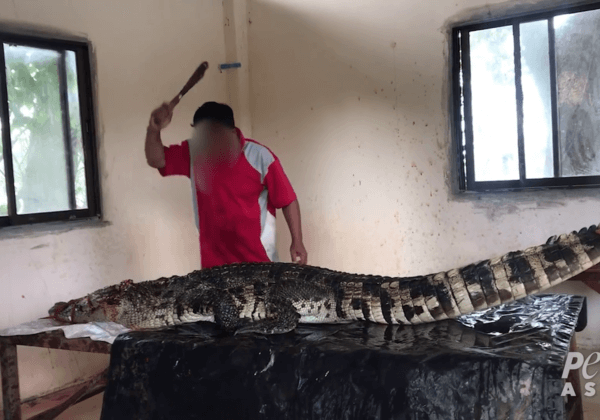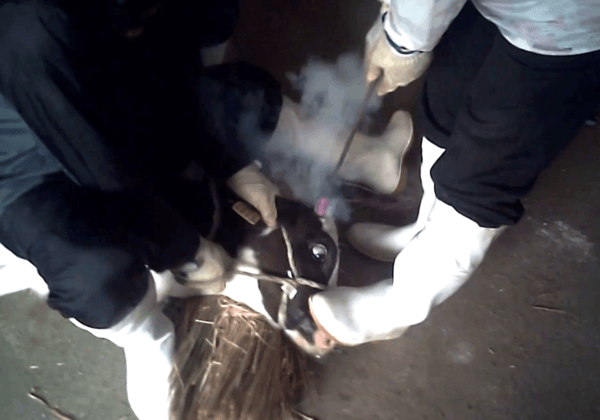Plant-Eating Lemur Blamed for Buffalo’s Barbaric Death
Shocking images have surfaced online showing a terrified flying lemur being aggressively restrained by a man in the Philippines. The herbivorous animal, locally known as a kagwang, has been blamed for the gruesome death of a carabao and mistakenly branded a mythical “aswang.”
Despite eating mostly leaves, flowers, and fruits, this folivore (an herbivore who eats mostly leaves) has been blamed for viciously attacking and killing nearby animals. Kagwangs are endemic to certain regions in the Philippines, and they are listed as an endangered species. The images have gone viral, and thousands of Facebook users have expressed anger over the mistreatment of this sensitive animal.
Unfortunately, the fate of this gentle creature remains unknown.
Flying lemur mistaken for aswang https://t.co/USj9uhfijl pic.twitter.com/cdzlyACFMm
— GMA News (@gmanews) June 27, 2016
Leave Wild Animals in Peace
This is just one example of how humans cause our wild neighbors far more trouble than they cause us. Each day, humans invade thousands of acres of their territory, destroy their homes, and kill them and/or their family members.
Always respect wildlife’s “comfort zone.” Maintain a generous distance from animals, especially nesting birds, baby animals, and nursing mothers. If animals seem frightened or bothered by your presence, move farther away or leave the area. Learn more about peacefully sharing a space with wildlife here.
What You Can Do
Communities must recognize that the abuse of any living being is unacceptable. With this in mind, please be sure to do the following:
- Urge your local law-enforcement agencies, prosecutors, and schools to take cruelty to animals seriously.
- Be aware of signs of neglect or abuse, and immediately report suspected crimes to authorities.
- Don’t ignore even minor acts of cruelty. If you witness or suspect cruelty, report it.








